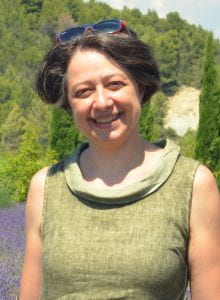Tag: cogneuro
Michelle Kramer, Cog Neuro Ph.D. student wins 3-Minute Thesis Prizes!
Congratulations to Michelle Kramer, 4th-year Cognitive Neuroscience graduate student, who competed yesterday in the GW 3-minute Thesis (3MT) competition. This is a fun event where Ph.D. students have 3 minutes to present their dissertation project. Michelle went up against a strong group of excellent presenters, and she won both the 3rd place award AND the People’s Choice Award!
When you see her in the halls and have *exactly* 3 minutes to spare…ask her what her dissertation work is about!
Awards and fellowships!
Congratulations on these recent fellowships awarded to Psychology folks!
Psychology major, Melissa Baker, has been awarded a Luther Rice Undergraduate Research Fellowship. She will work with faculty mentor, Dr. Mimi Le on a project titled, "The Relationship Between Physical Activity Levels & Postpartum Depression Symptoms at 6 Weeks Postpartum".
Clinical Psychology Ph.D. student, Sanam (Sammy) Dhaliwal, has been awarded a George Washington University Summer Dissertation Fellowship for her project, "The Role of Sleep Disruption in the Onset of Perinatal Depression" Sammy's faculty mentor is Dr. Mimi Le.
Applied Social Psychology Ph.D. student, Steffi Renninger, has been awarded a George Washington University Summer Dissertation Fellowship for her project, "Adaptive and Maladaptive Responses to Weight Loss Failure among Middle-Aged Men: The Potential Moderating Role of Achievement Goals." Her faculty mentor is Dr. Tonya Dodge.
Postdoctoral fellow, Dr. Patrick Cox, received an Early Career Travel Grant to attend the upcoming Vision Sciences Society meeting in St. Petersburg, FL in May. Patrick works with Dr. Steve Mitroff.
Sanam (Sammy) Dhaliwal and Maria Cimporescu, who were awarded Richard Walk Dissertation Fellowships! Sammy’s research mentor is Dr. Mimi Le, and her project is entitled “The Role of Sleep Disturbance in the Onset of Perinatal Depression”. Maria’s mentor is Dr. George Howe, and her project is “Stress Appraisal of Anticipatory Stressors Related to the Transition Out of College”
We wish all of them the best in these endeavors!



